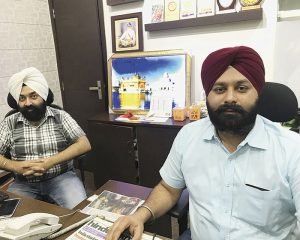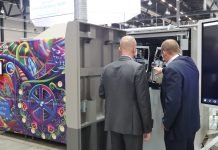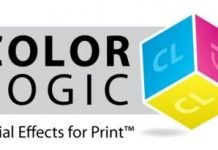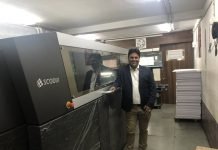
Imperial Photobooks in Amritsar is run by partners Sandeep and Amritpal Singh. Imperialhas units in Chandigarh, Ludhiana, Karnal, Jammu and Amritsar. The company, which started producing photobooks in 2001 in Chandigarh under the name of Capital Photobooks, made its first major digital press investment with a pair of HP Indigo 5500s in 2010. The Amritsar unit, called Imperial Photobooks, was set up in 2014. The Ludhiana plant operates under the name Pro Imaging.
At Amritsar, Imperial has a second-hand HP Indigo 5500 and for digital spot UV it uses a second-hand Scodix print enhancement machine. The company also owns a Konica Minolta c6805 digital press and a digital photo enlargement machine for photo producing 24-inch x any size of conventional photo prints.
Imperial buys Scodix S75 press from Monotech
For offering value-added services with special and enhanced effects on printed sheets, on book covers, brochures and album covers, the company uses spot UV. Spot UV decoration and enhancement increases the print cost by five times. “However, the demand for spot UV is gradually increasing. Compared to last year, we find the demand has increased by 20% already. Observing this trend, we decided to invest in a Scodix S75 digital press with spot UV from Monotech,” says Amritpal.

The Scodix S75 will help Imperial increase spot UV production output from 30 prints a day to 300 in an hour. The machine has already been installed and production on the new press will start by end of June 2019. The S75 digital enhancement press supports media size up to B2+ sizes as large as 20 x 28.8 inches. The UV-based inkjet printer offers resolutions up to 2540 x 360 dpi and can print on substrates as thick as 700 microns. It will give the company the value add differentiation from new entrants in the area.
Quality service for building goodwill in the market
Talking about his company’s brand and the quality it provides, Sandeep says, “The evaluation of a business should never be done by its turnover. The services one provides and the consistency one maintains in quality speak louder than the turnover figure. We have worked hard over the years in building trust among our customers. The kind of machines we’ve invested in for helping us to keep up with our customers’ demands speaks for itself.
“To set up a plant in today’s scenario is not child’s play. One has to evaluate the possibilities the market offers. Ultimately, it’s more than money that one invests in starting a business. For someone to set up a photobook production plant with all the latest technologies today will cost nearly Rs. 10 crores. We added three machines in the last five years. On a yearly basis, we are spending close to Rs 60 lakhs to improve our production capability.”
Flattening demand for photobooks
On a daily basis, Imperial is capable of producing 400 albums. “But as you know, the demand is not really that high. We have been trying hard to provide the best service and retain customers. However, despite our best efforts, we are currently able to utilize only 50% of our overall production capability. We produce close to 200 photo albums daily. Since this is a seasonal business, when the demand is high, we get orders for 500 photobooks each day but currently we’re utilizing only 50% of our capacity,” Amritpal explains.
The partners indicate that the competition has increased in the market with the addition of new presses and new entrants. The addition of three new photobook production businesses nearby has affected their market. “Though they are pretty much unorganized, there is an impact on our business. We used to be the only suppliers in this area. With the three new setups, we will also have to keep a close watch on the rates. We cannot increase our rates for the next one year if we want to retain certain customers. These are some of the factors that don’t let us grow our business and contribute to the decline in demand in the industry,” Sandeep concludes.















